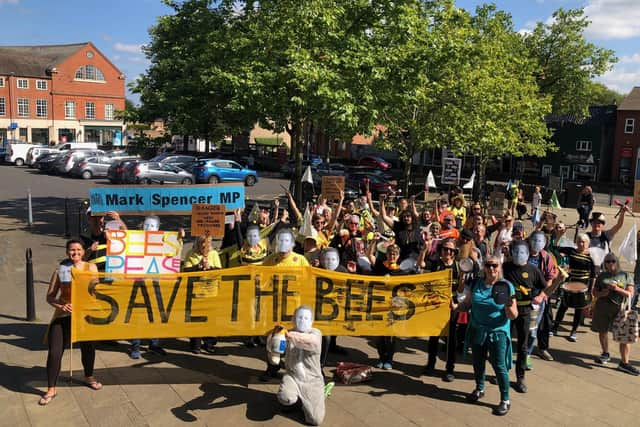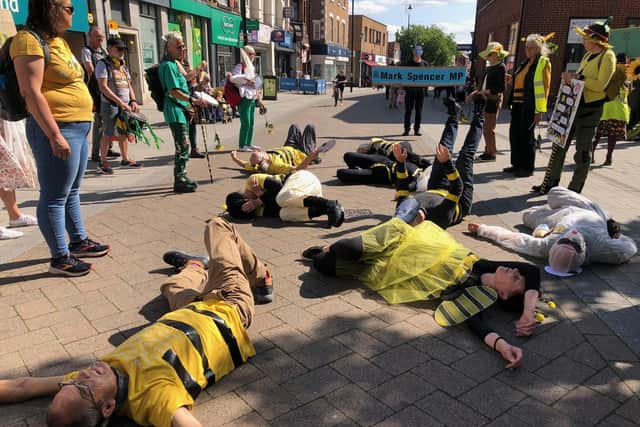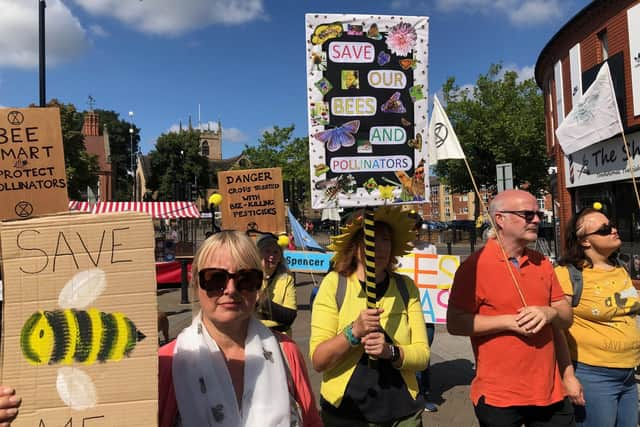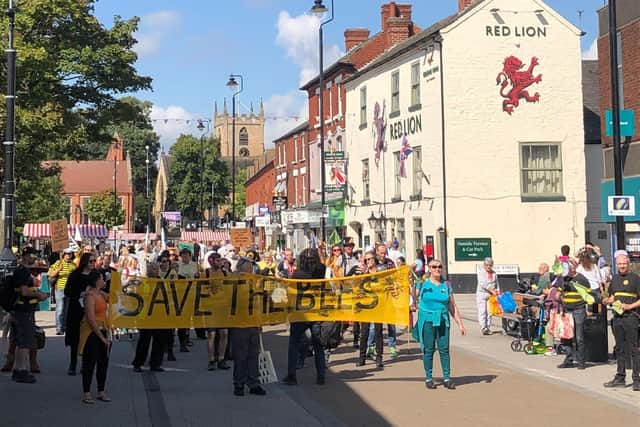Protesters buzz Hucknall to slam Government and highlight plight of Britain's bees
This article contains affiliate links. We may earn a small commission on items purchased through this article, but that does not affect our editorial judgement.
and live on Freeview channel 276
On a sunny day, the busy Market Place and High Street was made busier still by a crowd of placard-carrying campaigners, several of whom were dressed in stripey yellow and black clothes, accompanied by musicians and singers.
The group was highlighting issue of the continued ‘emergency use’ of banned neonicotinoid pesticides, known as ‘neonics’, on crops like sugar beet, which it claims is killing millions of bees across the UK.
Advertisement
Hide AdAdvertisement
Hide AdBack in January, the Government again authorised the use of the pesticide for use on sugar beet in ‘emergency situations’.


But Extinction Rebellion says this is having a catastrophic impact on Britiain’s bee population and called for an immediate total ban on the use of neonics.
The group targeted Hucknall for its protest as it is where MP Mark Spencer, the current Minister of State for the Department for Environment, Food and Rural Affairs and himself a farmer, has his constituency office.
In a statement on the Extinction Rebellion Nottingham Facebook page, the group said: “For the third year in a row, Mark Spencer MP, in his Governmental role, has authorised a banned neonicotinonoid bee-killing pesticide for use on sugar beet.
Advertisement
Hide AdAdvertisement
Hide Ad

"XR Newark & Sherwood are leading a campaign to highlight this.
“The campaign landed in Hucknall, where Mark Spencer's office is, supported by XR Nottingham and other Midlands rebels, a choir and XR Rhythms.
"Local people were angry to hear about their MP’s involvement in this scandal and worried about what a future without insects could hold.”
Campaigners also collected signatures for a petition which is calling for a Parliamentary vote to be held in future before these pesticides are allowed to be used again.
Advertisement
Hide AdAdvertisement
Hide Ad

Prior to the march, campaigners had highlighted the potentially devastating impact neonics pesticides can have on bee populations, saying Wildlife Trusts have said that just one teaspoonful is toxic enough to kill 1.25 billion bees.
Mr Spencer said: “All farmers recognise the value of pollinators for our food production and biodiversity.
"The Pollinator Action Plan, published in May 2022, sets out the Government’s plan to protect pollinator habitats and help them thrive.
"The action plan builds on, and is informed by, the National Pollinator Strategy, a 10-year project which sees collaboration with farmers, conservationists and businesses to address the pressures pollinators are facing and improve habitats.
Advertisement
Hide AdAdvertisement
Hide Ad

"An outbreak of the beet yellows virus on the nation’s sugar beet crop would have a devastating impact on UK sugar.
"The decision to grant an authorisation for neonicotinoids was not taken lightly and was based on extensive and rigorous scientific assessment.
"The product can only be used if a strict threshold is met and on a single non-flowering crop.”